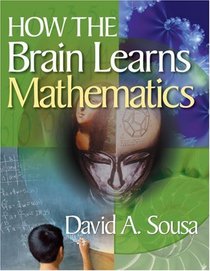Search -
How the Brain Learns Mathematics
How the Brain Learns Mathematics
Author:
"I am so impressed with this book that I believe it should be required reading for all teachers who teach math at any level." — -Mary Thoreen, Mathematics Teacher — Wilson Middle School, Tampa, FL"An excellent, well-organized, well-written book-practical advice grounded in solid research and presented in compelling language." — -Rober... more »
Author:
"I am so impressed with this book that I believe it should be required reading for all teachers who teach math at any level." — -Mary Thoreen, Mathematics Teacher — Wilson Middle School, Tampa, FL"An excellent, well-organized, well-written book-practical advice grounded in solid research and presented in compelling language." — -Rober... more »
ISBN-13: 9781412953061
ISBN-10: 1412953065
Publication Date: 9/19/2007
Pages: 264
Rating: 1
ISBN-10: 1412953065
Publication Date: 9/19/2007
Pages: 264
Rating: 1
5 stars, based on 1 rating
Publisher: Corwin Press
Book Type: Paperback
Other Versions: Hardcover
Members Wishing: 3
Reviews: Amazon | Write a Review
Book Type: Paperback
Other Versions: Hardcover
Members Wishing: 3
Reviews: Amazon | Write a Review
Genres:
- Reference >> Schools & Teaching >> Instruction Methods
- Science & Math >> Mathematics >> Study & Teaching




